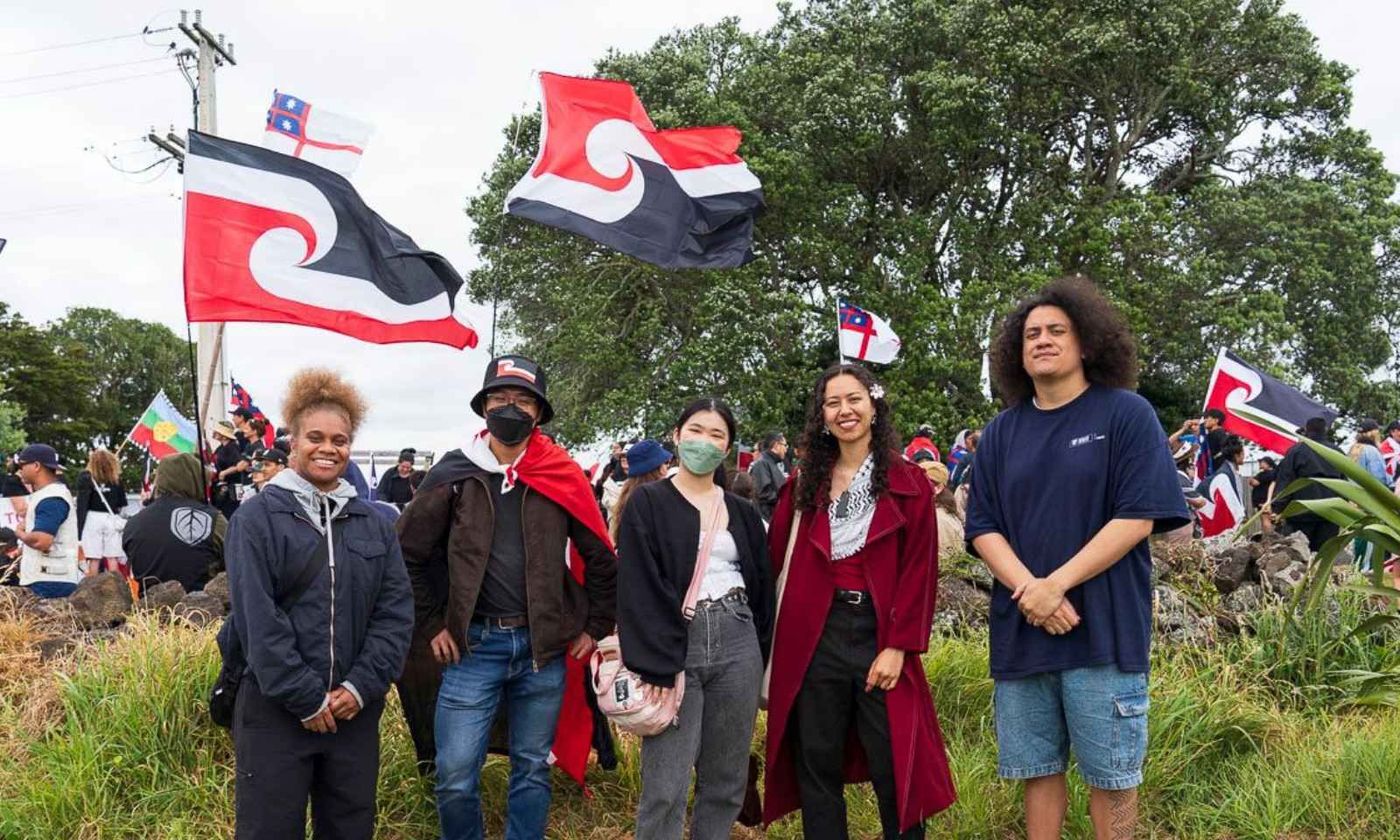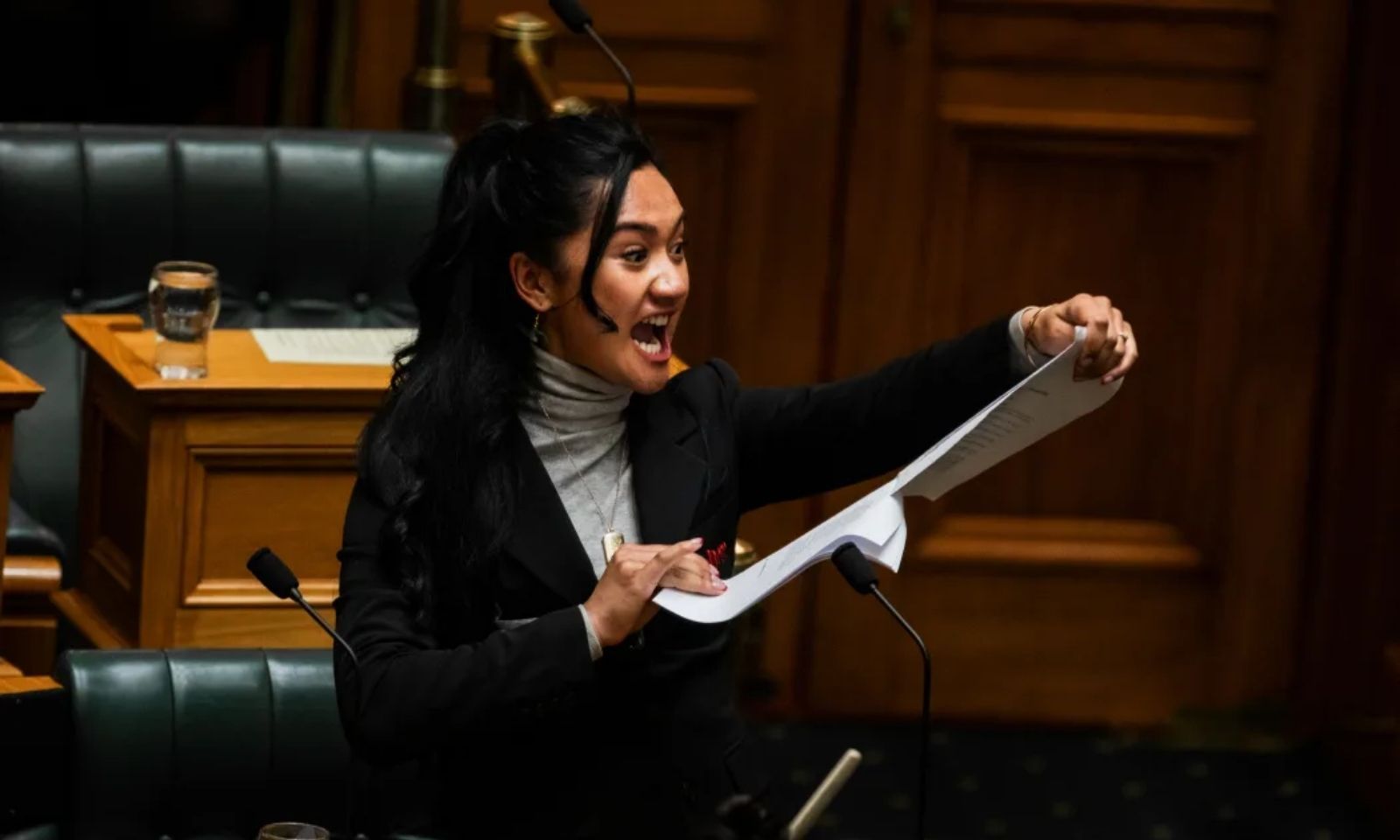

Tens of thousands took part in the Hīkoi mō te Tiriti which reached Parliament last week.
Photo/Ala Vailala/Te Pāti Māori/Supplied
‘It wasn’t a hīkoi, it was a carkoi’
Vaovasamanaia Winston Peters and Debbie Ngarewa-Packer weigh in on the haka, the hīkoi, and the Treaty Principles Bill.




Pacific sports wrap: 2025’s massive highs, lows and historic firsts



Top 10 Pacific Island songs you need on your summer playlist in 2025


Pacific sports wrap: 2025’s massive highs, lows and historic firsts

Political barbs have been thrown following last week’s haka in Parliament and nationwide protest action against the Treaty Principles Bill.
The Hīkoi mō te Tiriti - March for the Treaty - was a seven-day convoy from both ends of the country that culminated in Wellington on Tuesday with tens of thousands of people.
Deputy Prime Minister Vaovasamanaia Winston Peters dismissed the hīkoi as a ‘carkoi’.
Speaking on Pacific Mornings, Peters compared it to the 1975 Māori Land March and criticised its lack of authenticity.
“I was there in 1975 for the first land march of any really substantial size.
“And it began with my tribe called Ngāti Wai, or my iwi called Ngāti Wai way back then.

The national hīkoi took a stand against the ACT Party’s Treaty Principles Bill and started in the Far North and arrived at Parliament last week. Photo/PMN News/Candice Ama
“And then I contrasted it with this one, and it wasn't a hikoi, it was a carkoi.”
Te Pāti Māori co-leader Debbie Ngarewa-Packer defended the hikoi as a powerful moment of unity and resistance.
“We know that we have big mahi before us to help our whanau and the nation to understand that Te Tiriti o Waitangi is here to protect all New Zealanders from corporate exploitation, which is really what this is all about.”
Looking back
The ACT Party’s Treaty Principles Bill seeks to redefine the document’s clauses and use in legislation but has sparked controversy and accusations of endangering the governing rights of Māori.
Peters explained that the Treaty is a simple three-clause document with terms set at the signing in 1840.
“As [Sir Apirana] Ngata said, and he laid it out in his thesis 102 years ago, there are no principles to the Treaty of Waitangi.
Watch Debbie Ngarewa-Packer's full interview here.
“He laid it out, ‘This is a three-clause document, which means this, this, and this’.”
Ngarewa-Packer said Ngata’s thesis was during a time when the Māori population faced a threat of extinction but believed the Treaty was a living document that needed a different approach in today’s political environment.
“I understand the politics of wanting to live in the past, but 70 per cent of our population are under the age of 40.
“We do not get the right as today's politicians to apply the old whakaaro only to our thinking.
“We must be transformational and we must be aspirational. So I think we just come from different spheres of influence and our influence is that we're a million plus, and we want to be thriving, that's it.”

Te Pāti Māori MP Hana-Rawhiti Maipi-Clarke breaks into a haka in Parliament. Photo/RNZ Photo/
Haka hot takes
Peters also raised his concern about Te Pāti Māori performing the haka in Parliament after the Bill passed its first reading.
“You could not say any Māori would have been proud of it.”
Ngarewa-Packer disagreed and said the haka was an authentic expression of grief and defiance in what she calls “the darkest times” for Māori representation in Parliament.
She challenged that tikanga Māori should only be permitted in Parliament when it suits others.
“They're happy to have our karakia, karanga and waiata when it suits, but actually in an authentic situation when we're really deeply grieving.”
Submissions for the Principles of the Treaty of Waitangi Bill close on Tuesday 7 January.
Watch Vaovasamanaia Winston Peters' full interview here.